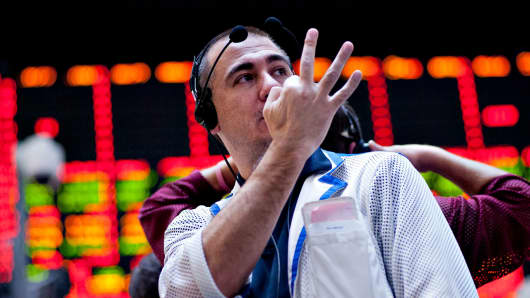The US economy has avoided any threat of reverting back into recession even though growth won't be robust, economist Lackshman Achuthan told CNBC.
Achuthan, managing director of the Economic Cycle Research Institute, said the economy likely would move into a "soft landing" phase but would not see the dreaded double-dip scenario.
"Being very definitive on this, we're not going to go into a new recession anytime soon," he said. "That has a lot of implications when you can rule out a certain nightmare scenario."
Numerous leading economic indicators, including credit, inventories, employment and housing have convinced experts at the ECRI that the economy is safe.
"What we're looking at is the collective pattern in the wake of recessions," Achuthan said. "You have a little bit of a spurt into recovery, then it throttles back and at that point you come to a fork in the road, and you either go into a new recession...or you veer away into the soft landing track. We've done the latter."
Ahead of next week's Federal Reserve meeting, Achuthan warned about possible "unintended consequences" from the central bank's expected move to announce another round of asset purchases intended to stimulate the economy—also known as quantitative easing, or QE.
He said the Fed needs an exit strategy for how it will begin normalizing monetary policy after an aggressive sequence of money-printing moves.
"That's the real risk here, not so much that the QE2 itself is going to make craziness happen, but they won't be able to dial it back at the right time," he said.


